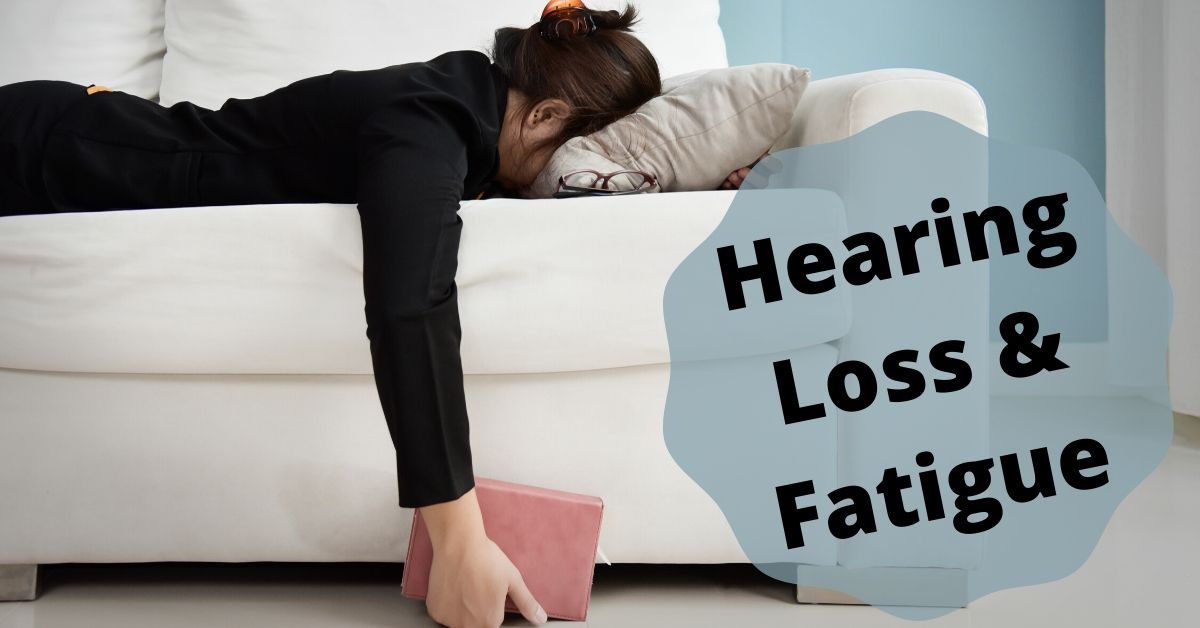
Hearing Loss & Fatigue
Those who have lived with hearing loss for some time know just how tiring it is to get through a day. If you’re new to hearing loss, or aren’t even sure if you have it, you might not realize that hearing loss is contributing (or, by itself, causing) the fatigue you’re experiencing day to day. Most people start experiencing age-related hearing loss somewhere in their mid-40s to 60s, and it can take a while before hearing loss becomes readily apparent. Or, if you have minor but noticeable hearing loss, you might think that your hearing loss and your fatigue are separate conditions, “Just part of getting older, I guess.”
Once a person puts two and two together and realizes that hearing loss is the cause of their fatigue, it can be striking just how much they notice it. This is because communication relies as much on the brain as the ears, and when our ears aren’t sending everything to the brain that it’s used to receiving, it tries to make up the difference. Under normal circumstances, the brain uses more energy than any other organ in the human body: 20% of the calories we ingest go to our brain.
Relying on context clues, lipreading, trying to listen while trying to determine meaning — these are already complex tasks that eventually exhaust our brain. With just the subtle lack of high-frequency hearing we experience at the onset of noticeable hearing loss, making it hard to tell the difference between a “B” sound and a “P” sound, the brain is stressed that much harder, moment by moment, through a conversation or other listening experience.
How to Cope with Fatigue from Hearing Loss
Even those who have normal hearing sometimes need to employ strategies to keep their minds acute over a long day of listening. Audio professionals, in particular, know just how bad it can get: working on sound all day long, by the end of the day they report having difficulty distinguishing one sound from another, or determining where sounds are coming from in space. Here are a few tips for coping with the mental exhaustion that comes with hearing loss:
Take a Break
Every hour or so, step away from conversation and noise and let your ears, and brain, rest for a few minutes. Let yourself think about whatever comes to mind, simply observing your own thoughts. Close your eyes if you can. This can last 5 or 15 minutes- just enough time to give you a little reset and let you bring your focus back.
Reduce Background Noise
If a lot of sound is coming at you at once, it’s going to be more difficult to focus on the sound that’s important to you. You’ll likely notice that you get more tired talking to someone in a busy, reverberant restaurant than in the quiet of your own home. If you’re meeting someone in a public space, try to choose a quiet restaurant or park away from busy streets and machines, and try to avoid meeting up at places that play loud music or have tables very close together. Ask if you can be seated in a quieter zone in the space. If you’re at work, maybe moving your desk to a quieter spot will help you maintain your energy throughout the day and be more productive.
Take a Nap
The National Sleep Foundation reports that a 20-30 minute nap can give you a boost of energy when you’re feeling drained. Keep it short though; longer than 30 minutes and you might wake up groggy and/or have trouble sleeping later. The benefits of napping are well-documented and its advocates include many inventors and titans of the technology industry, so give it a try and see if it can help you be more alert for more of the day.
Hearing Aids Can Help
A properly fitted set of hearing aids can return hearing ability to near-normal. That means the fatigue associated with hearing loss will practically disappear from your life, letting you engage with others as you always have.
If you’re not currently treating your hearing loss, make an appointment with us today and get a hearing test. Hearing aids can improve your life in ways you might not yet imagine, and determining that you have hearing loss can help you take some steps to reduce the likelihood of increased hearing loss over time.
